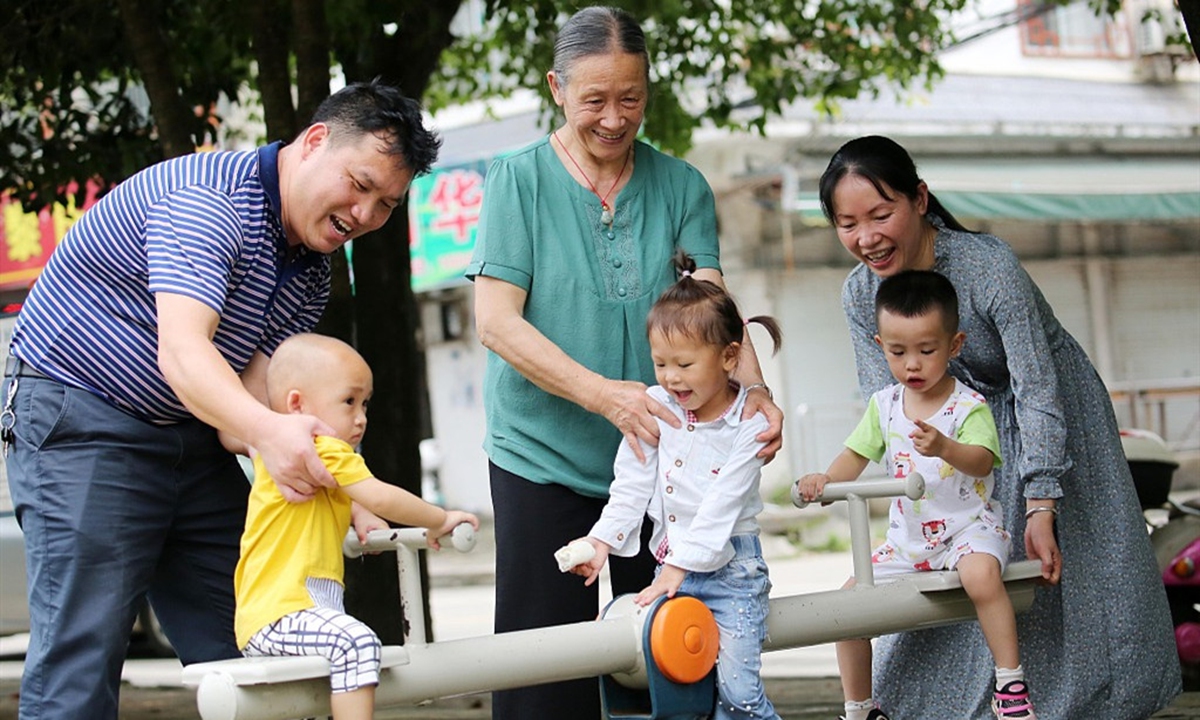
Third child Photo:VCG
The Chinese central government released a document on Tuesday in which it vowed to revise the law on population and family planning, giving full legal weight to the third-child policy, which experts said may indicate plans to end all limits on family size.
Experts said the move can to some extent bring about a fertility rebound by 2025, partially reversing China's low birth rate, which worsened amid the COVID-19 epidemic as couples delayed plans for more children.
The country will allow a couple to have three children, and the government will no longer fine couples who have more babies, according to the document released by the Communist Party of China Central Committee and the State Council, the cabinet.
How many children an individual has will no longer be taken into account when he or she registers a household, enrolls in school, or applies for a job, the document said.
China will improve public services related to family planning, particularly for raising children and caring for the elderly, and it will enhance demographic data collection and forecasts.
Huang Wenzheng, a demography expert and senior researcher at the Center for China and Globalization, told the Global Times on Tuesday that the document releases very positive signals, as it signals a trend to China loosening all restrictions on how many children a couple can have .
The end to fines for those who violated the family planning law is for all couples, according to the document, which means couples who would like to have more than three children won't be fined, Huang explained.
China's total fertility rate declined rapidly from 1.7 per woman in 2016 to 1.3 in 2020.
Huang did not think such measures would help increase the fertility rate in the short term, but they would slow the pace of decline.
However, Li Yue, a researcher at the China Population and Development Research Center, said the fertility rate might climb a bit as a result.
Li estimated that an extremely low rate would occur between 2021 and 2025 due to the low willingness to have children and the postponement of pregnancies during the COVID-19 epidemic.
But under the help of these measures, and gradually fading effect of the epidemic, the fertility rate would probably rebound to some extent by 2025, Li told the Global Times on Tuesday.
In response to a netizen whose wife works at a state-owned institute in Lhasa, Southwest China's Tibet Autonomous Region, the Tibetan government replied in the message field of people.com.cn on Monday that Chinese people have been allowed to have a third child since May 31, and women can take a 98-day maternity leave after giving birth to a third child.
Although the central government announced the decision to allow domestic couples to have a third child on May 31, it takes time to implement the specific measures.
The announcement "nearly can be understood as a complete opening to having babies in China," He Yafu, an independent demographer, told the Global Times




